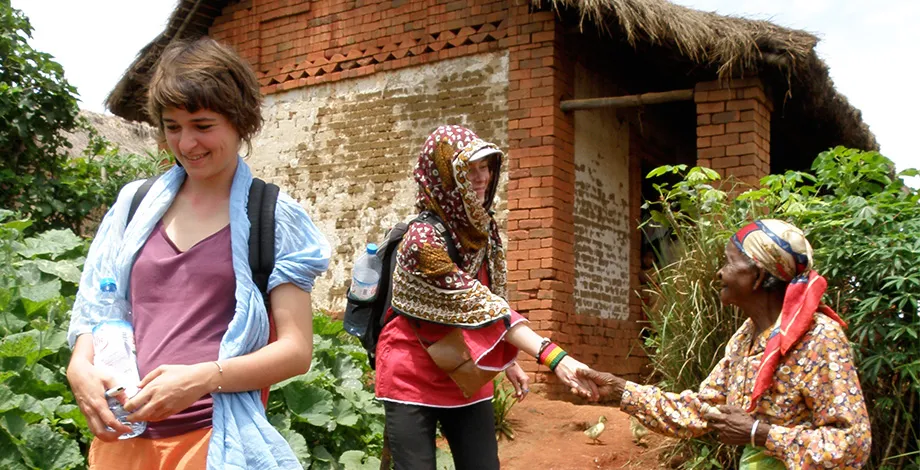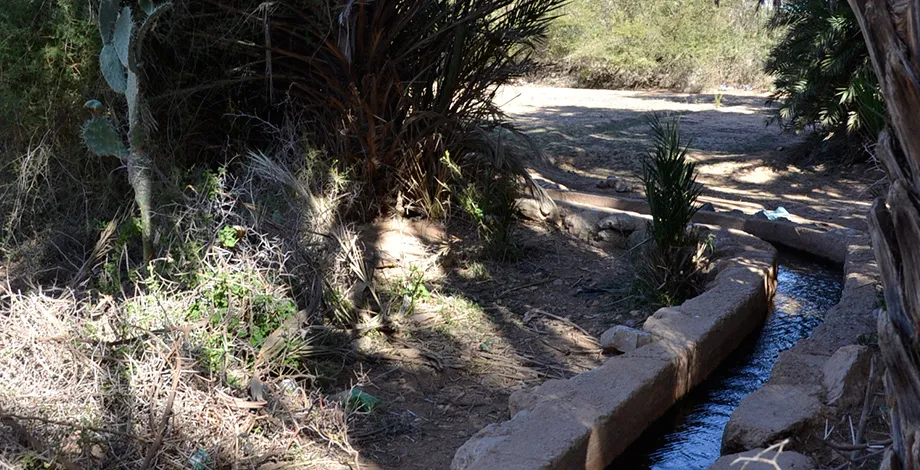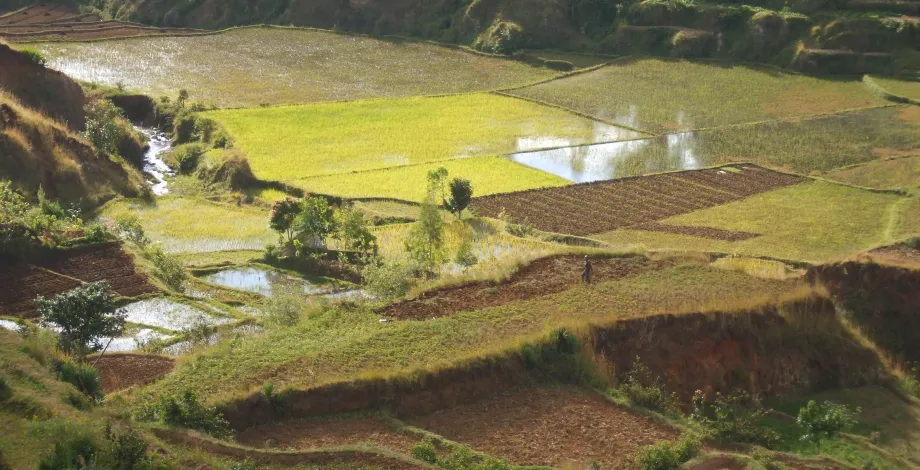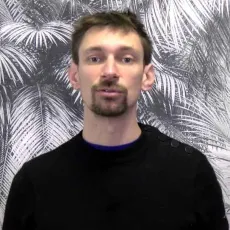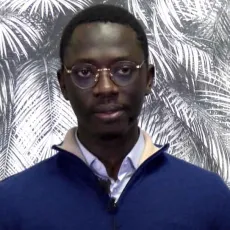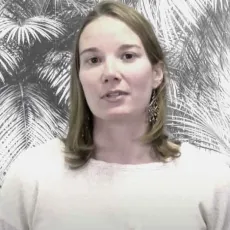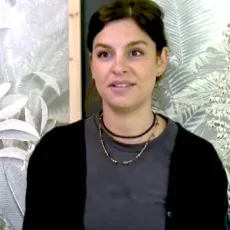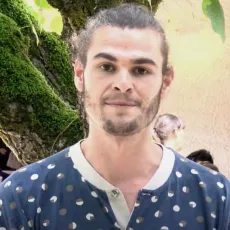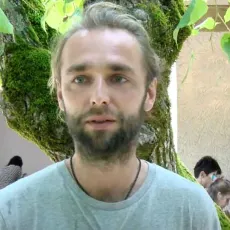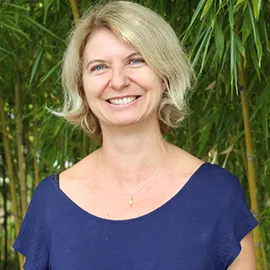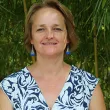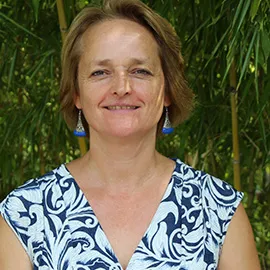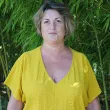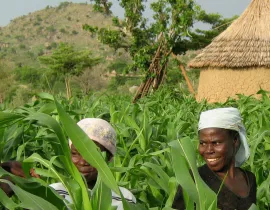To work support farmers in both the southern and northern hemisphere in changes in their practices to better reconcile agroecology and economic viability
|
What type of training ? |
une formation diplômante, sous statut étudiant |
|---|---|
|
For who ? |
student with a French diploma, international student |
|
Where ? |
Centre for Tropical and Mediterranean Studies |
Objectives
This course aims to train executive agronomists at the service of sustainable agricultural development, in the Northern and Southern hemispheres. It focuses in particular on the practices of farmers and their interactions with ecological, economic and social issues.
It is about understanding these practices and then assessing them to identify changes and relevant support systems. The preferred scales of analysis are the farm and the territory. Students acquire interdisciplinary skills in the fields of agronomy, animal science, natural sciences,sociology of innovation and micro and macro-economy.
At the end of the course, students are able to:
- Assess the state of agriculture in a region, the changes that affect it and identify the challenges faced for its sustainable development.
- Develop in partnership with farmers the changes required to improve their agricultural production and resource management practices.
- Support individual or collective processes of change.
- Design, implement and evaluate agricultural development projects.
- Work in a multidisciplinary team, as an intermediary between several stakeholders.
Themes
- agronomy, agroecology
- agriculture and rural development, farms and farm organizations
- Mediterranean and tropical countries
- natural resources, environment, territories
-
Programme
Number of ECTS credits : 60
Language of instruction : In French
The lessons are organized into five Teaching units that cover different approaches in analysis-diagnosis and agricultural development, by spanning local to global fields and scales and crossing from 3theory to practice through field projects with stakeholders.
- Agrarian systems and agricultural development–This teaching unit provides knowledge to understand the diversity of agriculture of the world, its origin and the ways in which they are influenced by economic policies and international markets. Field work in France enables students to learn while implementing tools and agricultural analysis-diagnosis methods of a region, then to identify the difficulties and obstacles to its sustainable development.
- Agro-ecosystems, ecological intensification and management of natural resources–Based on the challenges of the ecological intensification of agricultural systems, we conduct a process of observation of the functioning of biophysical environments, analyse their interactions with agricultural practices, evaluate their agroecological performance and their environmental impacts. Field work is carried out in the same region as teaching unit 1.
- Collaborative work and support of changes on the farm–This teaching unit aims at designing and supporting technical and/or organizational changes on a farm. The students have hands on experience by working with a farmer to identify, model and initially assess the technical, organizational and economic impact of a change.
Work with groups to support transitions–This teaching unit helps to understand the processes of change by groups of stakeholders in rural areas, to acquire collective research methods and tools for solutions, to co-design and model innovations, and to carry out a reflective analysis on the roles of the involvement with groups. Practical applications are carried out via role-playing and the use of collaborative modelling tools
- Hands on experience–Before the individual end-of-studies internship, a final teaching unit consists in groups of students responding collectively to a request from a client in a region in France or abroad.
Hands on experience
Support transitions
Internships
6 month internship
The student deals with the request from a research or development organization, farm or business in the Southern or Northern Hemisphere involving the production of primary data on the field. They analyze the request, design and implement a relevant scientific approach, and present and defend their oral and written results.
-
Admission
The programme is open to students who have validated their first year of a master’s programme in a French agro/agri/agribusiness engineering school or the agricultural engineer programme at Montpellier SupAgro. Eligible candidates are:
- students who have validated the 2nd year of a national school of agronomy in France or equivalent under inter-institutional agreements
- engineering students who have validated the 2nd year of an ENITA engineering training programme
- engineering students who have validated the 4th year of a FESIA engineering training programme
To be able to pursue the Resources, agricultural systems and development option, it is strongly recommended:
- For engineering school students: to have followed a 2nd year course whose contents are strongly oriented towards agronomy and farms.
- For Montpellier SupAgro students (engineering courses): to have taken the major, "Towards sustainable agriculture".
Candidates must have at least an equivalent to Master 1 level, other ways to apply: see below
-
Careers
The Resources, Agricultural Systems and Development (RESAD) training prepares engineering and master’s graduates for a wide range of positions in sustainable agricultural development, both in the North and in the South, in the following institutions:
- Development support agencies: territorial, national, multilateral Institutions, extension services, NGOs, donors, foundations...
- Producer organizations, associative and union structures, Chambers of Agriculture, technical institutes
- Higher agricultural training institutions, research centres
- Private sector: consulting firms and companies that are supplied by a variety of producers.
Possibility of continuing with a PhD thesis.
A wide range of jobs in France and abroad.
- Project leader or manager in agricultural development
- Advisor or facilitator (insight 1, insight 2)
- Consultant or study manager (insight 1, insight 2)
- Trainer, teacher, researcher or lecturer after a PhD (insight)
- Entrepreneur (insight)
Various employers
- Professional agricultural organizations, agricultural development associations, communities territorial authorities, trade unions, chambers of agriculture
- NGOs, Foundations, International Organizations
- Private companies, design offices
- Agricultural training and/or research centers
Paroles de...
Director of studies
Place
Pôle Tropiques et Méditerranée
Campus de Lavalette
1101, avenue Agropolis
Montpellier
Key features
- Articulation of different scales of analysis - from global to local - and perspective of different disciplines.
- Alternating courses and work experience (group internships)
- Confrontation of scientific and practical questions of agricultural development: surveys, field observations, group work skills...
- Important research partnership
- A dense network of agricultural development professionals in France and in the South
- Career guidance
Fees
€1,990 + €105 Contribution Vie Etudiante et de Campus (CVEC) administrative fee
Contacts
L'Institut Agro Montpellier
2 place Pierre Viala
34060 Montpellier - France
Tél. : +33 (0)4 99 61 22 00 Tél. : +33 (0)4 99 61 22 00
Fax : +33 (0)4 99 61 29 00
contact@supagro.fr



